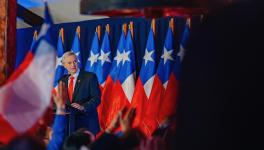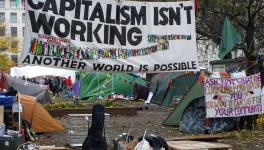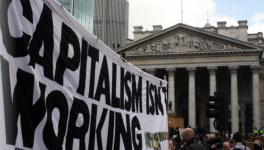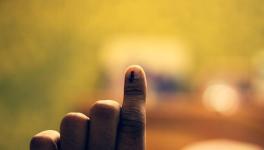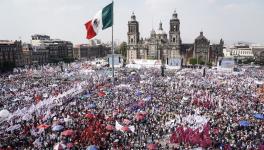Two Years of Duque’s Colombia: Deepening Neoliberalism, Increased Violence and a Public Health Crisis
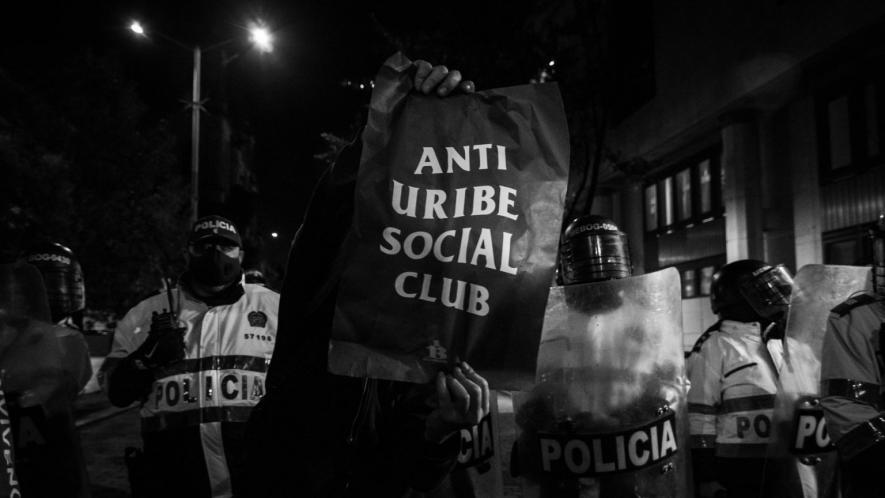
Colombians had a brief moment of celebration following the Supreme Court of Justice's announcement that they were ordering the detention of Álvaro Uribe Vélez. Photo: Colombia Informa
August 7 marked two years since Iván Duque took office as president of Colombia. For the Colombian people, these two years have been marked by incessant attacks on the rights of people, an increase in violence and the deepening of the economic crisis. Added to this, today, Colombia has the eighth highest number of COVID-19 cases in the world and the number of deaths is also steadily increasing.
In this context, Peoples Dispatch spoke to Milena Ochoa, the director of the Corporation for Popular Education and Research – National Labor Institute – CEDINS – and a member of Congreso de los Pueblos (the People’s Congress) to understand what two years of the Duque presidency has meant for the Colombian people, and how his poor management has made Colombia one of the countries worst hit by the pandemic. We also asked her about the implications of Colombia’s Supreme Court of Justice ordering the detention of former president Álvaro Uribe Vélez on August 4.
Peoples Dispatch: Two years after the inauguration of Iván Duque, how do you evaluate his time in office?
Milena Ochoa: We evaluate the two years of the Iván Duque government as negative for the Colombian people. With respect to democracy, the rule of law and the search for peace, it has been completely negative. The government, led by Iván Duque, is completely beholden to and acts in favor of the interests of the class that it represents – the cattle farmers, the large landowners, the paramilitaries, the drug traffickers and the corrupt. This becomes clearer by the day. We do not have public policies to guarantee rights. Nor do we have possibilities of organization, of opposition and of struggle.
There are two key aspects to point out here. The first has to do with the search for paths to peace with justice. The current government has not respected the agreements with the Revolutionary Armed Forces of Colombia (FARC), and it has also blocked the possibility of continuing dialogue with the National Liberation Army (ELN). This is disastrous since the agreements and advances that we made throughout the history of Colombia are steps forward in building a political solution to the social and armed conflict in our country. The agreement with the FARC is understood as a state agreement between governments. But in this case, the government of Duque has not respected these commitments and gone directly against the just struggles for peace in our country and the steps towards building democracy.
Another element is the sharp rise in persecution and political violence. The assassination of social leaders, as well as the persecution and criminalization of social leaders, has increased. Over 970 social leaders have been assassinated in Colombia since the signing of the peace agreement. These killings have not stopped even amid the pandemic. On the contrary, the confinement and isolation measures have created ideal conditions for the continuation of this violence.
Duque’s rule has also been characterized by the continuation of the neoliberal model with a strong component of repression and social control. Within this neoliberal model, extractivist policies continue despite campaign promises such as a ban on fracking. But they are already doing tests and studies to implement fracking, and in some parts of the country, it has already begun.
These are some of the issues the social organizations are engaging with and struggling against.
PD: Colombia, despite being a relatively small country, has the eighth highest number of COVID-19 cases in the world. How did it get there? How did the Duque government fail in containing COVID-19?
MO: There are a number of reasons for Colombia being in its current situation. A key factor is the measures that were taken by the government. But these should not be seen as mistakes because they are in fact consistent with the politics and interests of the ruling class. Thus, when isolation and physical distancing measures are put in place but without a basic income, without basic needs being met and without basic guarantees for people, they become measures of social control. These measures, accompanied by the growing militarization in rural areas and the cities, seek to avoid social outburst and protests that are imminent in moments such as this when inequality becomes so apparent.
The same is with people having to stay at home, but without the possibility of receiving aid. This is when 70% of the population of our country lives in informality and has completely precarious jobs. These measures become control mechanisms rather than steps to guarantee the protection of people.
Additionally, we have seen a series of reforms that are completely against the interests of the Colombian people. We have seen measures that inject public funds into the private sector and to business owners. We have seen how the economy has been reactivated through days of big sales and offers that led to huge crowds gathering in different parts of the cities in the super markets and in other big areas. Overall, we see a policy that seeks to manage the pandemic in a way that focuses on the functioning of the economy rather than on life.
A second and more structural aspect is how the pandemic has accelerated what was already a trend in the crisis of capital itself. The precarity of life, the privatization of rights like healthcare and patriarchal violence – all of this has become worse and is spreading even further during the pandemic. The pandemic is sharpening all of these tendencies that were already inherent to capitalism and patriarchy.
Overall, the workers have borne the brunt of this crisis and the pandemic. In Colombia, more than 70% of the people who have died are from strata 1 and 2 (*). These are the precarious workers who are forced to leave their homes to make ends meet, because we are facing a situation of choosing between survival and infection. A large part of the population has been forced to opt for survival over avoiding infection. In response to this, the government has continued with a management strategy that favors the economy and big business but is against the people and their survival.
PD: On August 4, the Supreme Court of Justice ordered the detention of ex-president Álvaro Uribe Vélez. Within hours, President Duque had already expressed his support to Uribe. What does this decision mean for Uribismo? What does this decision mean for the people of Colombia?
The order for the detention of Álvaro Uribe Vélez is a serious, destabilizing blow for Uribismo. For example, in the case of Iván Duque, it implies recalculating this zone of comfort that was allowing him to manage the pandemic and make reforms and push forward policies with ease. In fact, the pandemic, in some respects, had allowed him to get a breather because his popularity was declining.
So in one way, the detention order forces him to change his stance, even with regard to the Supreme Court of Justice, which as a public functionary and as the president, he cannot do. He should actually respect the decision of the court because it is an institution that imparts justice in this country. However, he has taken the opposite route and this could even open up the possibility of sanctions or a disciplinary process because he cannot make this kind of statement in favor of his leader Álvaro Uribe Vélez and against the Supreme Court of Justice.
Duque has already talked about reforming the justice system and his party, the Democratic Center, now talks about doing it via a National Constituent Assembly. If they do carry out any reforms to the justice system, it will be in favor of their interests and will lead to greater impunity.
A third aspect is that Álvaro Uribe Vélez has always considered himself a powerful man, a patriarch who could not be questioned, someone who was practically untouchable. So the court’s decision is an important symbolic victory. However, it must be recognized that this is a first step and the charges he is facing – procedural fraud and bribery – are perhaps the least serious crimes and least serious problems for Álvaro Uribe Vélez at this moment.
What does this mean for the Colombian people? For the Colombian people, achieving justice is an enormous challenge. This is not only with respect to Álvaro Uribe Vélez because like many others at different points of the history of our country, he did not act alone. The crimes against humanity, the massacres, the extrajudicial assassinations, his links to drug traffickers – all of this makes his criminal record much bigger but he was never acting alone. The businessmen, other political leaders (both local and national), military forces, paramilitaries, large landowners – they are all involved in this situation of injustice and impunity and extreme inequality. For the Colombian people, there are many challenges in taking forward the legal process against Álvaro Uribe Vélez and we hope that it will actually advance in a process of truth, in a process of justice, and that he will be judged and sentenced for the crimes that he has committed in this country.
(*) In Colombia, municipalities divide the city into strata based on the socio-economic indicators of the residents. Stratus 1 and 2 are the poorest strata.
Courtesy: Peoples Dispatch
Get the latest reports & analysis with people's perspective on Protests, movements & deep analytical videos, discussions of the current affairs in your Telegram app. Subscribe to NewsClick's Telegram channel & get Real-Time updates on stories, as they get published on our website.










